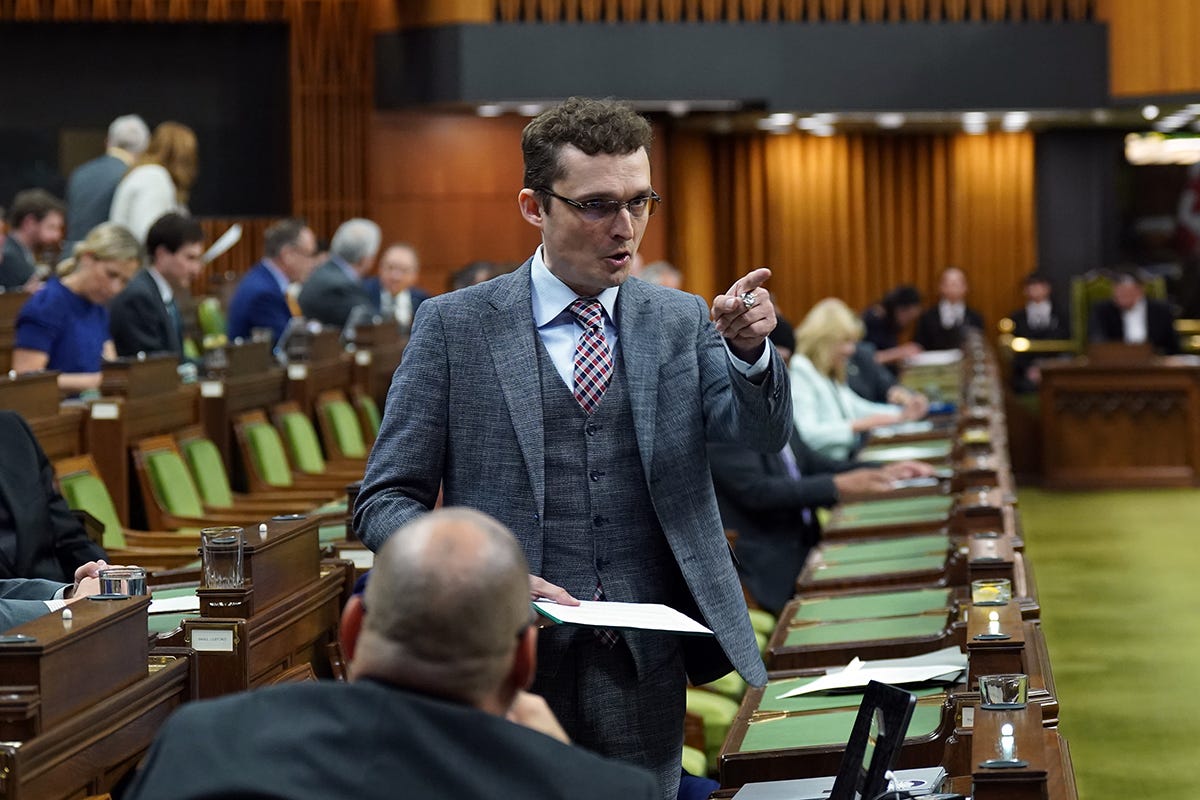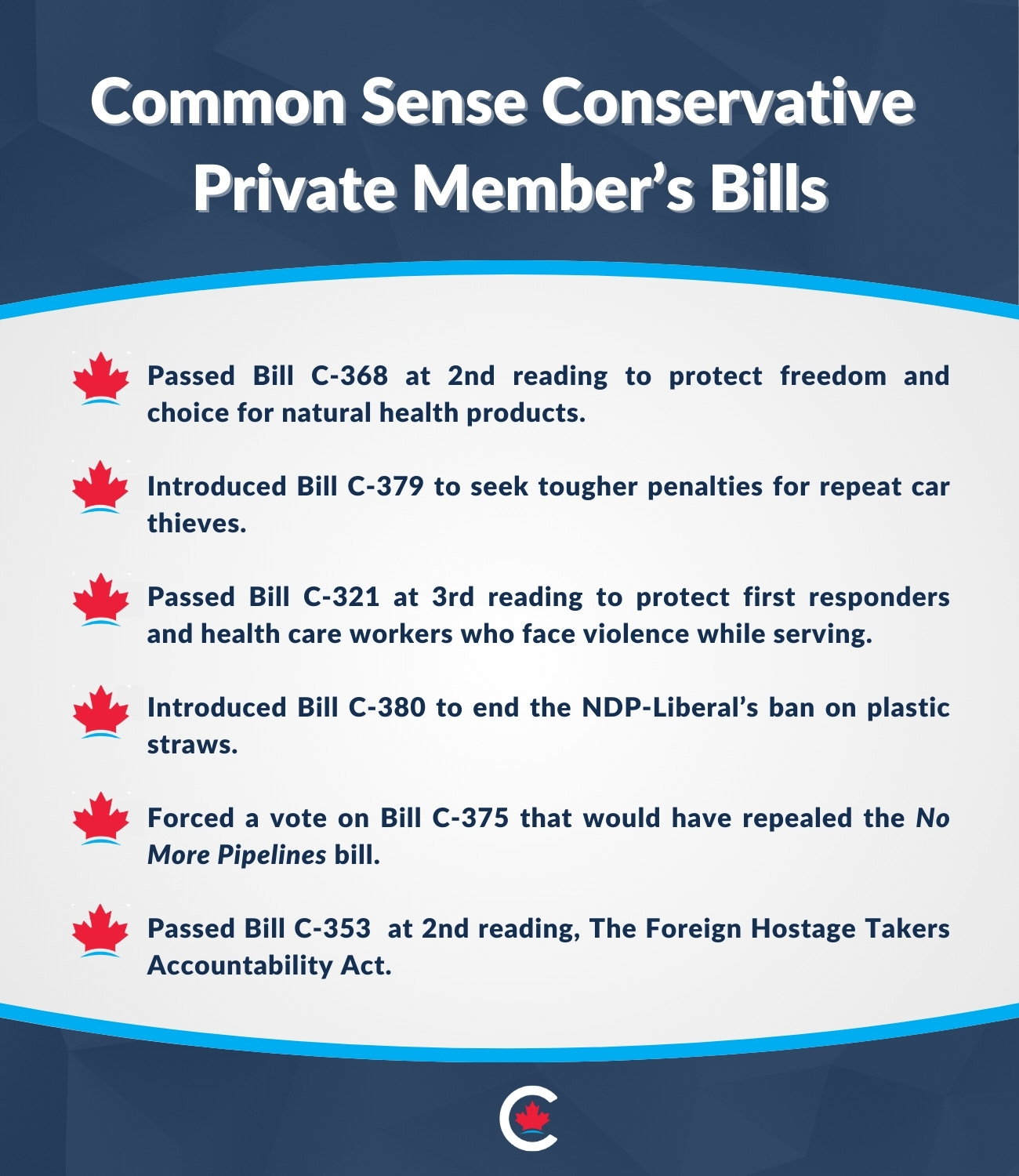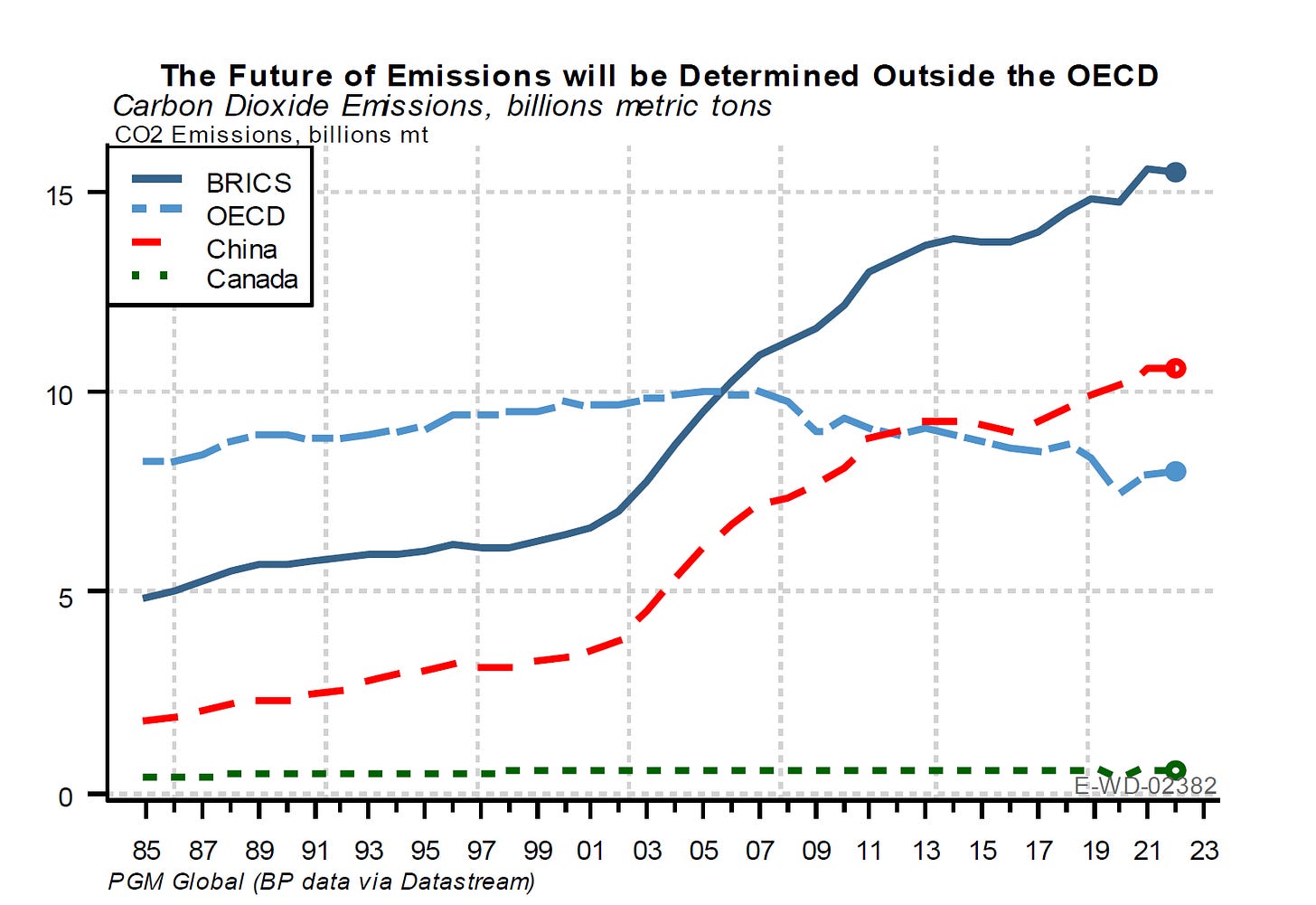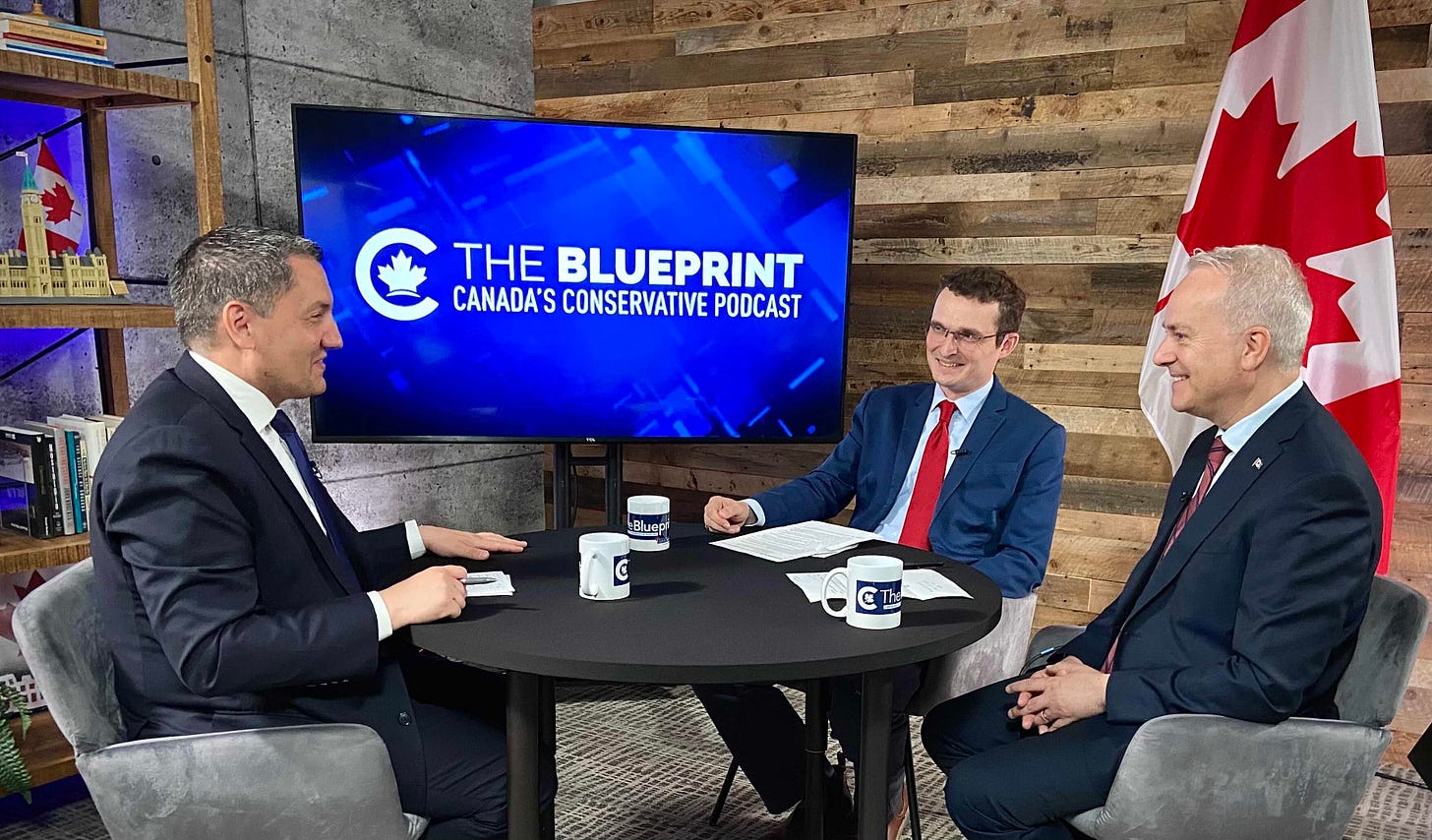Recap of the Spring 2024 Parliamentary Session
Plus highlighting conservative legislative accomplishments from this past year, China is using Canada's good name to greenwash its appalling environment record, and an update for the summer.
The spring 2024 parliamentary session has concluded, and MPs, including myself, are returning to our ridings to connect with those we represent. A lot has happened in the past few months, and it has been both equally optimistic and disappointing. The optimistic part is that Conservatives have been successful in forcing the NDP-Liberal coalition to defend its abysmal record while also working hard to draft legislation that will benefit Canadian families. The disappointing part has been seeing the coalition’s abysmal record play out in real time as I often hear stories from Calgarians who are struggling to deal with the affordability crisis created by the NDP-Liberals. For this edition of Resuming Debate, I want to provide you with an overview of the major events that marked this session, which include some of the legislative highlights and accomplishments of my fellow conservative MPs.
Conservatives forced Parliament to hold a non-confidence vote so that the NDP-Liberal coalition would face Canadian voters in a Carbon Tax Election. On April 1, the NDP-Liberal coalition raised the carbon tax by 23 percent, forcing Canadian families to pay an extra $700 for groceries this year. They did this at a time when food banks were already struggling to keep up with demand because more Canadian families were struggling to pay for food. Last year, food banks had to handle a record 2 million visits in a single month, with a million more visits expected in 2024. Furthermore, the carbon tax increase will cost families in Alberta an extra $2,943, which is more than any other province affected by the April 1st increase. When it became clear that the Liberals were not going to budge on their punitive tax raise, we forced a non-confidence vote so that they would have to face Canadian voters in a Carbon Tax Election. However, their junior coalition partners, the NDP, sided with them and voted against our motion. We also forced a vote calling on the NDP-Liberals to give Canadians a summer break by axing the carbon tax, the federal fuel tax, and GST on gasoline and diesel between Victoria Day and Labour Day so that families can afford a simple summer staycation. After forcing this vote, the NDP-Liberals couldn’t even bring themselves to temporarily axe the carbon tax. While it was disappointing to see that the carbon tax will still be in place for the future, I am very hopeful that Canadians are seeing right through the NDP-Liberals tax grab and are ready to ‘Axe the Tax’ in an upcoming election.
We forced a vote on Bill C-356, the Building Homes, Not Bureaucracy Act, and exposed the government’s abysmal record on housing. For those who have been keeping up with this newsletter, you know that the housing crisis is one of the topics that I am most passionate about. Over the past nine years, Canada has been heading towards a housing crisis that has only accelerated and deepened from major overspending by the NDP-Liberals during the pandemic that has driven up asset prices. Add supply chain woes to the mix and Canada's total dwellings built annually has continued to drop year after year. That has created a shortage of supply that cannot meet the high demand for housing. The nearly $100 billion housing accelerator fund often touted as the solution by the NDP-Liberals is a failure.
As I have previously written, the government-run Canadian Mortgage and Housing Corporation has stated that an additional 3.5 million homes need to be built by 2030 to restore housing affordability; however, this government has only committed to building 1.2 million homes by then—a fraction of our current needs. To address this dire need, Conservative leader Pierre Poilievre introduced Bill C-356, the Building Homes, Not Bureaucracy Act, which would require cities to speed up the rate at which homes they build homes every year to meet our housing targets. Some details of the bill include:
Cities must increase the number of homes built by 15% each year, and then 15% on top of the previous target every single year (it compounds). If targets are missed, cities will have to catch up in the following years and build even more homes, or a percentage of their federal funding will be withheld, equivalent to the percentage they missed their target by.
Cities that exceed that target will get bonus funding; cities that miss it will have their funding reduced.
It also requires that federal transit funding provided to certain cities won’t arrive until those stations are surrounded by high-density residential buildings.
Despite tabling what is clearly common-sense legislation, the NDP-Liberal coalition voted against this bill, exposing that they are not serious about solving the problem they created.
Conservatives fought to fix Budget 2024. Last week, I spoke in Parliament and blasted the government on its disastrous Budget 2024 and why my Conservative colleagues and I would be voting against it. During the Budget 2024 announcement in April, the Liberals introduced $61 billion dollars in new inflationary spending despite the Governor of the Bank of Canada, already warning their spending habits were “not helpful” in bringing inflation down and lowering interest rates. As the budget vote neared this past week, Common Sense Conservatives introduced dozens of motions to amend the bill in order to lessen the blow it would have on Canadian taxpayers. As usual—you are probably picking up on the common theme—the NDP voted with the Liberals, and the inflationary budget passed. It is clear that Conservatives are the only party capable of stopping wasteful spending that will result in bringing down inflationary spending. Introducing a dollar-for-dollar spending rule will ensure a future conservative would be able to limit government spending, balance the budget and bring down our borrowing costs that now stand at $54.1 billion. Twice what we spend on national defense. About the same amount we transfer to the provinces to pay for healthcare.
We worked with other parties to pass Bill C-70, which gives our law enforcement agencies the necessary power to detect, disrupt, and protect against foreign interference threats. Since the Liberals formed government in 2015, meddling in our elections from hostile foreign states—such as China, Russia, India, and Iran—has increased, even to the point where there have been threats and acts of violence committed on Canadian soil. Moreover, I was 1 of 18 parliamentarians who were members of the Inter-Parliamentary Alliance on China that was targeted by a PRC-controlled group in a hacking attack. After the Hogue Commission, which led the public inquiry into foreign interference, revealed that hostile states had a larger influence in our elections than previously known, a rare moment occurred in Parliament. Conservatives worked with the government to expedite the passing of Bill C-70, which gives our law enforcement agencies new powers to counter foreign interference threats while also increasing the penalty for any individual who aids a hostile state. While it was good to see this legislation passed, it took far too long for the Liberal government to address this issue. They are slow to act and do the right thing but for those wanting to see political parties work together this was one of those times when the Liberal government finally listened to conservative common sense.
The following graphic highlights some more Common Sense Conservative legislation that has been passed or introduced this past year to stop the NDP-Liberal coalition’s agenda.
Beijing communists are using Canada's good international reputation to greenwash it's terrible environmental record and the Liberals are letting it happen. On Monday, during the Canada-People’s Republic of China Relationship parliamentary committee, I grilled the Deputy Minister of Foreign Affairs about how the People’s Republic of China (PRC) is currently building more coal power plants while using Canada’s good name to greenwash its appalling environmental record. Just last year in China, 114 gigawatts were approved that use coal power, while another 70 gigawatts started construction. For comparison, in 2022, 104 gigawatts were approved, and 54 gigawatts were under construction. Furthermore, China is far outpacing Canada in its carbon dioxide emissions as it released 11.5 billion tonnes of CO2 in 2021, compared to the 550 million tonnes of CO2 Canada released the same year.
Beijing is also showing no signs of cutting back on coal power while the NDP-Liberals punish Canadians with ever higher carbon taxes, costing families thousands more annually. Overall, China will be nowhere close to meeting their 2025 climate change goals they claimed they would achieve. This is all while our NDP-Liberal environment minister sits on the Executive Committee of the China Council for International Cooperation on Environment and Development, which is essentially a fig leaf used by the Communist Party to hide the fact that they're not going to meet any of their climate change goals. I asked the Deputy Minister if he raised any of these concerns with the PRC vice-foreign minister when they met in April 2024, but he refused to answer the question. We must not allow the NDP-Liberal government to keep getting used naively to greenwash China’s coal agenda while punishing Canadians with high carbon taxes.
Watch me question the Deputy Minister on China’s appalling greenwashing of its environmental record:
The Conservative Blueprint Podcast. This past week, I recorded my appearance on the Conservative Party-run Blueprint podcast along with my colleagues MP Jamie Schmale of Ontario and MP Kelly McCauley of Edmonton. During the recording, we recapped The Good, The Bad, and The Ugly from the spring parliamentary session. With The Good, we discussed how Canadians, especially young adults, are reacting positively to the hard work that Conservatives have been putting in to represent them better than the current NDP-Liberal coalition has. For The Bad, we went over how the coalition has been embroiled in multiple contracting scandals, such as the ArriveCan scandal or overpaying for McKinsey contracts, and how they have been rewarding their friends through the Sustainable Development Technologies Canada (SDTC)—aka the Green Slush Fund. For The Ugly, we discussed Canada’s cost of living crisis, created by this government, which is seeing more families struggling to pay for their rent, mortgage payments, home heating bills, groceries, and other expenses. Be on the lookout for when this episode of the podcast is released.
Resuming Debate on hiatus this summer. Because Parliament has risen for the summer, Resuming Debate will return on September 20. Follow me on Facebook or Instagram to stay up to date on events I will be attending throughout the summer. I hope to see you there.
Happy Canada Day and happy Stampeding.






Oh, so one of the cherry picked parts of the omnibus budget Bill?
Thx for clarifying Tom, but the result is the same. Yet another targeted attack on O&G (i.e. Alberta and Saskatchewan prosperity) and an ill disguised censorship of opposing opinions.
Brian Hodgson
Tom, what about Bill C-372 An Act respecting fossil fuel advertising?